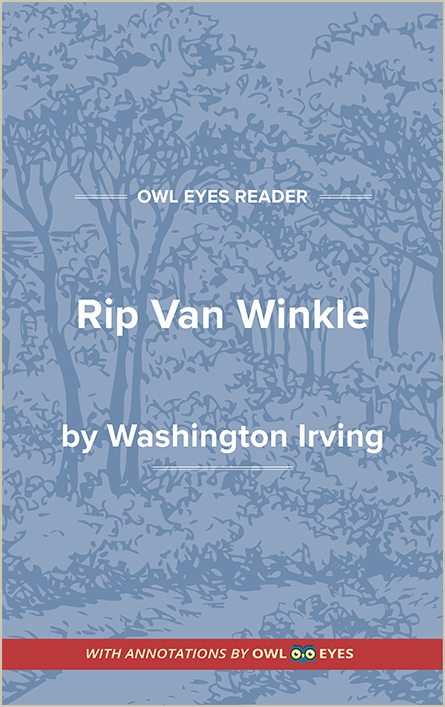Analysis Pages
Plot in Rip Van Winkle
Plot Examples in Rip Van Winkle:
Rip Van Winkle
🔒"One of these he seized and made off with it, but in the hurry of his retreat he let it fall among the rocks, when a great stream gushed forth..." See in text (Rip Van Winkle)
"“D. K.” POSTSCRIPT...." See in text (Rip Van Winkle)
"NOTE...." See in text (Rip Van Winkle)
"the great Hendrick Hudson..." See in text (Rip Van Winkle)
"barked at him as he passed..." See in text (Rip Van Winkle)
"a mountain stream was now foaming down it..." See in text (Rip Van Winkle)
"Having nothing to do at home, and being arrived at that happy age when a man can be idle with impunity..." See in text (Rip Van Winkle)
"Cardenier..." See in text (Rip Van Winkle)

